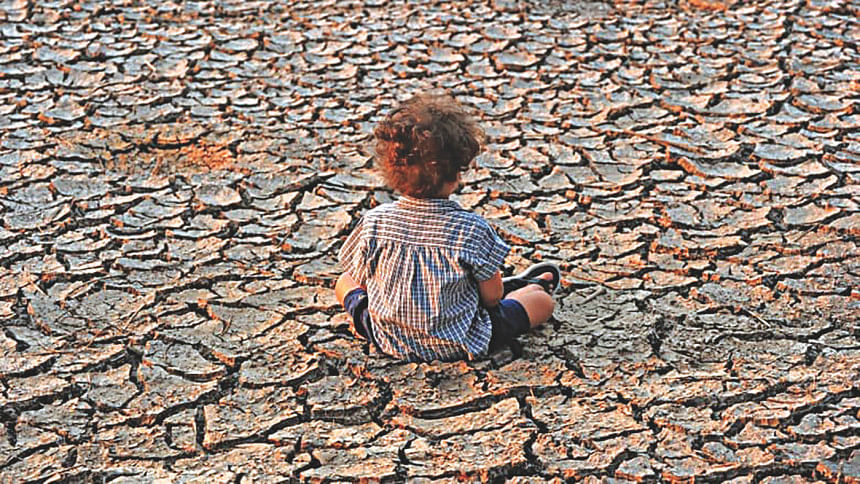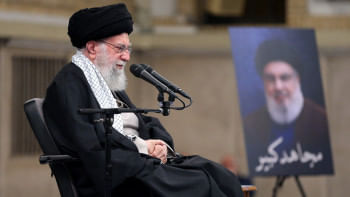Tackling global climate change

The year 2020 is going to be remembered for a long time to come as being a pivotal year in the global war against human induced climate change. This new decade will be crucial in determining whether or not we will be able to successfully tackle what is morphing from a climate change problem into a full-fledged climate change emergency. This coming decade will be critical for all the countries, including Bangladesh. I will describe below some areas of opportunity as well as concern, going forward.
To start with, at the global level, we have reached the end of our reliance solely on collective global action through the United Nations Framework Convention on Climate Change (UNFCCC), with the debacle at the 25th Conference of Parties (COP25) held in Madrid, Spain recently. The pinnacle of this process was achieved in the Paris Agreement at COP21 in 2015 and now it is all about implementation and no longer about further negotiations.
Even though we are hopeful of a better outcome at COP26 to be held in Glasgow, Scotland under the presidency of the United Kingdom in November 2020, aiming get all countries to raise their levels of ambition to reduce emissions of greenhouse gases to enable the Paris Agreement target of 1.5 Degrees Centigrade to be achieved, we know that this target is becoming increasingly out of reach. We are also seeing the reluctance of important world leaders such as the US President Trump, Australian Prime Minister Scott Morrison and Brazil's Bolsanaro to even acknowledge the climate change emergency, let alone address it. Hence from 2020 onwards we need to seek coalitions of will, both amongst developing countries as well as with some developed countries such as the United Kingdom as well as other European countries and also New Zealand.
At the same time we need to re-focus our attention from talking at annual COPs to initiating actions on the ground in every country, town, village and locality. This is where citizen action is critical and the opportunities opening up with the use of social media and internet is just beginning to reveal its potential with the movement of school children striking every Friday led by a single teenager from Sweden called Greta Thunberg whose protest sparked a global movement within a year. The next decade will allow much more of such linking across the globe amongst activists and citizens, with a leading role to be played by the youth.
The other opportunity that is rapidly emerging is the possibility of expanding the use of renewable energy from both solar as well as wind sources. These technologies are becoming both more efficient as well as cheaper, and together with the third leg of the renewable energy tool, namely storage technology, has already made renewable energy cheaper than coal. Renewable energy will become cheaper than oil next and then natural gas within this decade. That will be a major global game changer which will make the 21st century very different from the 20th century.
Together with other breakthroughs in technology, including artificial intelligence, big data and informatics, the global economy will transform itself over the next decade. This will require new kinds of education for the young people of today. This brings us to the role that Bangladesh has to play going forward to tackle the climate change emergency.
The first and immediate task is to take up a leadership role globally through the Climate Vulnerable Forum (CVF) which will be handed over from President Hilda Heine of the Marshall Islands to Bangladesh Prime Minister Sheikh Hasina in mid-2020 and she will be the chair of the CVF for a two year term which will include COP26 in November 2020.
This is a foreign policy opportunity for Bangladesh to change its image on climate change from vying to claim to be the most vulnerable country to vying to claim to be the most resilient country. This can be done by promoting South-South and South-North knowledge exchange with other countries in order to share our adaptation knowledge and experience.
The second opportunity for Bangladesh lies in the revised Climate Change Strategy and Action Plan which will run to 2030 and result in making Bangladesh a climate resilient country. The main aim of the revised strategy will be to mainstream and integrate climate change thinking into all aspects of planning, from national to sectoral and local levels. This should start with the preparation of the upcoming 8th Five Year Plan for the period from 2021 to 2026 which should be linked to the Perspective Plan 2041 and Delta Plan 2100.
At the same time, even though we are not a big emitter of greenhouse gases we should nevertheless take whatever measures we can to ensure that we develop our energy systems, transport and other industries to be as energy efficient as possible and also enhance the deployment of solar energy and explore wind energy—this technology is likely to become viable in Bangladesh within a few short years. We should plan the transition from fossil fuels to renewable energy by the end of the decade.
We also need to invest in more tree planting, both social forestry as well as in formal forests and stop the destruction of these forests. In particular we need to protect the Sundarbans from potential destruction from unplanned industrial development as the south western region of the country is connected to Dhaka by the Padma Bridge. We need to explore and promote nature based solutions for industrial development in the Khulna region.
Finally we need to invest in improving the quality of education of our children and youth, especially girls, to make them both climate resilient citizens as well as skilled to become part of the new global economy of the 21st century.
Bangladesh's most precious resource by far are our young people and if we can invest in educating them properly over the next decade then they will not only help Bangladesh overcome its twin problems of poverty and climate change, it will also help the rest of the world do the same.
Over the next decade, if we are able to play our cards right, we can turn Bangladesh into a global leader in tackling climate change and sharing our knowledge and experience with other countries.
Saleemul Huq is Director, International Centre for Climate Change and Development at the Independent University, Bangladesh. Email: [email protected]

 For all latest news, follow The Daily Star's Google News channel.
For all latest news, follow The Daily Star's Google News channel. 



Comments